Dartmouth Institute JEDI Team Builds a Force for Advancing Justice, Equity, Diversity, and Inclusion
The opportunity to impact initiatives around justice, equity, diversity, and inclusion (JEDI) at The Dartmouth Institute energizes the newly established JEDI Action Team. Comprised of 15 faculty, staff, and graduate students, the team represents a steadfast commitment to maintaining a diverse and inclusive community across the Institute’s educational and research programs. Most importantly, the team’s work focuses on elevating students' voices by driving a path forward to continually champion equity, diversity, and inclusion (EDI) efforts, both at Dartmouth and beyond.
At the Institute, the JEDI team is dedicated to:
- Developing a plan for inclusivity with guidance and input from students, faculty, staff, and alumni.
- Creating opportunities for representation from groups that are likely to be discriminated against in healthcare, including Black, Brown, Indigenous, and other people of color; LGBTQ+; and other underrepresented people and protected classes.
- Educating ourselves and our colleagues about systemic racism, including its role in the disproportionate distribution of health and the benefits of healthcare.
- Acknowledging that this is lifelong work and building upon JEDI work each year with new cohorts of students.
Read what motivates student members of the team to be change agents in advancing EDI.
Much of what hinders institutions [from moving forward with EDI work] is not having a group of people who want to lead that change. We are really fortunate that we were able to formulate a group of people who have a list of priorities for effecting change."
Anais Ovalle, MD, MPH'22
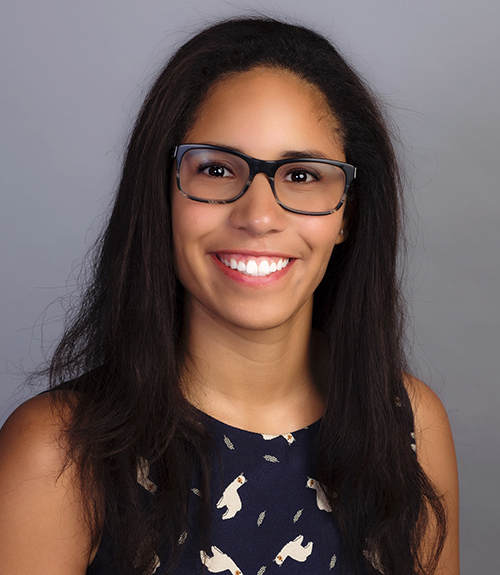 The importance of bringing multiple perspectives together to discuss dismantling barriers to social justice and health equity is a core pillar of Anais Ovalle’s training in public health. During her chief resident year at Kent Hospital, a Brown University affiliate, Ovalle completed the Brown Advocates for Social Change and Equity fellowship, which helps train healthcare providers for engaging peers in dialogue about anti-racism and anti-oppression work.
The importance of bringing multiple perspectives together to discuss dismantling barriers to social justice and health equity is a core pillar of Anais Ovalle’s training in public health. During her chief resident year at Kent Hospital, a Brown University affiliate, Ovalle completed the Brown Advocates for Social Change and Equity fellowship, which helps train healthcare providers for engaging peers in dialogue about anti-racism and anti-oppression work.
The experience heightened her passion and inspired her efforts as she worked with the JEDI student team to establish a student-run online forum throughout the winter and spring terms. There, they encouraged students to freely discuss their opinions – without feeling any sort of retaliation – around equity, diversity and inclusion, and the barriers that could be addressed to improve the classroom setting and make the institution more accessible to all.
“My MPH experience has taught me how to approach change from a systems point of view and ask: How can we change the system to make things better?” Ovalle says.
Providing safe spaces and opportunities for people to have open dialogue is essential. It needs to continue and be expanded upon."
Justice Nagovich MPH'21
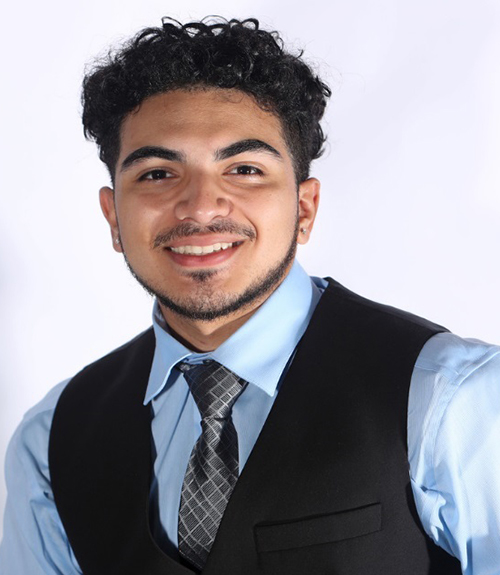 Growing up Latino in New York City, Justice Nagovich found importance in celebrating the differences that make people unique, which led him to become part of the EDI work at Dartmouth. He is passionate about combining his undergraduate experience in business and psychology with his MPH degree to help underserved communities.
Growing up Latino in New York City, Justice Nagovich found importance in celebrating the differences that make people unique, which led him to become part of the EDI work at Dartmouth. He is passionate about combining his undergraduate experience in business and psychology with his MPH degree to help underserved communities.
To help foster more inclusive dialogue across The Dartmouth Institute and his MPH classes, Nagovich worked with the JEDI team to develop an extensive list of terms and phrases with discriminatory undertones, such as the term ‘illegal immigrant.’ The purpose of this project is to make people more aware and mindful in their conversations, Nagovich explains, while helping everyone better understand which terms might be considered offensive.
“I also wanted to understand why people still use these terms and explore what our potential solutions to these implicit biases and systemic discriminations could be,” Nagovich says. “I feel that the only way to diminish that discrimination and reduce it is to understand different perspectives and experiences of others.”
The first step to try to improve any problem is to figure out what the problem is and what everyone perceives the issue as, because we all see things differently."
Alina Manko MPH'21
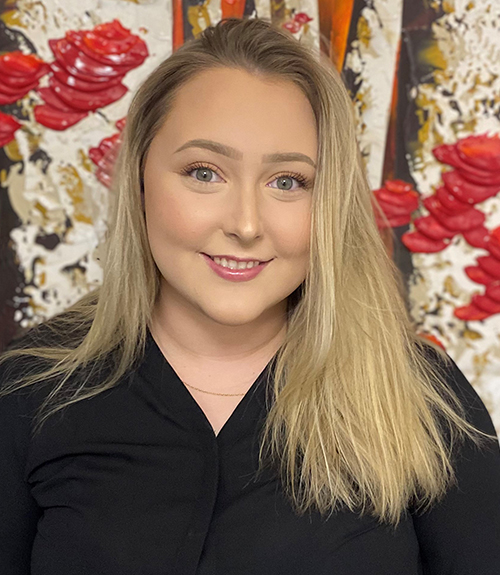 In her undergraduate studies, Alina Manko conducted research for her thesis with the LGBTQ community, which initiated her interest in equity, diversity, and inclusion. Through her JEDI work at Dartmouth, she appreciated not only learning about how to make a positive impact in one’s community, but to be given the chance to do something right now.
In her undergraduate studies, Alina Manko conducted research for her thesis with the LGBTQ community, which initiated her interest in equity, diversity, and inclusion. Through her JEDI work at Dartmouth, she appreciated not only learning about how to make a positive impact in one’s community, but to be given the chance to do something right now.
That opportunity came as a result of working with the JEDI team to survey students on their experiences and perspectives around EDI at The Dartmouth Institute. The team developed the survey to gain a ‘temperature check’ from the community and inform actionable goals for next steps. The team has since been using the data to fully evaluate the issues that students identified and for developing ideas for how to improve.
“This work doesn't end here though,” Manko says. “It's not something that can end when a problem is solved. You must constantly keep reevaluating and improving. I'm excited to see additional advancements that future JEDI groups can make at The Dartmouth Institute.
A goal set by the JEDI team was to help students at Dartmouth evaluate their privilege and weigh it against the societal inequities we all contribute to and suffer from. Understanding the impact that we all have is one of the beginning steps toward closing the inequitable gaps.”
Vorry Moon, MBA, MPH’22
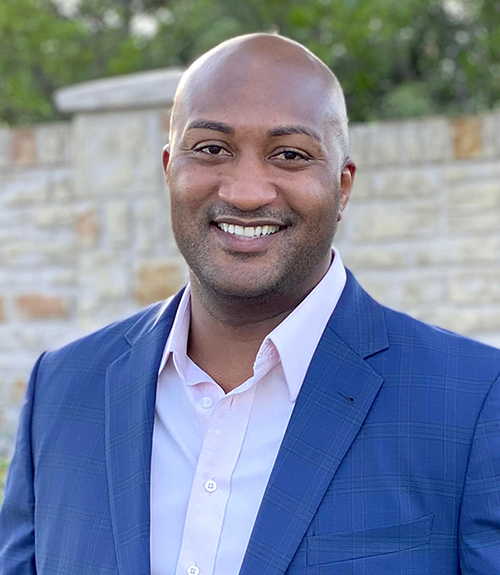 Vorry Moon is motivated by the JEDI team’s mission to help The Dartmouth Institute community recognize our own privileges and educate ourselves and our colleagues about systemic racism. As an African American male, he says he is subject to the injustices of systemic racism but also acutely aware of the privilege his socio-economic background and educational opportunities have afforded him.
Vorry Moon is motivated by the JEDI team’s mission to help The Dartmouth Institute community recognize our own privileges and educate ourselves and our colleagues about systemic racism. As an African American male, he says he is subject to the injustices of systemic racism but also acutely aware of the privilege his socio-economic background and educational opportunities have afforded him.
Moon says that developing ways to entice students and faculty to engage in an uncomfortable conversation, to truthfully recognize their privilege, and recognize what physical and mental characteristics will and will not be an obstacle in their lives is a tall order.
“No one wants to have this conversation,” Moon says. “I think a lot of well-minded people know that inequity exists but hope that time will allow it to heal itself. I think the entire JEDI team did a great job of finding a non-threatening, engaging way to have the conversation and get buy-in from all the respondents.”
Health equity and public health are inextricably intertwined. Understanding how society affects our health is critical to fully grasping a comprehensive public health education."
Blaise O'Malley MPH'21
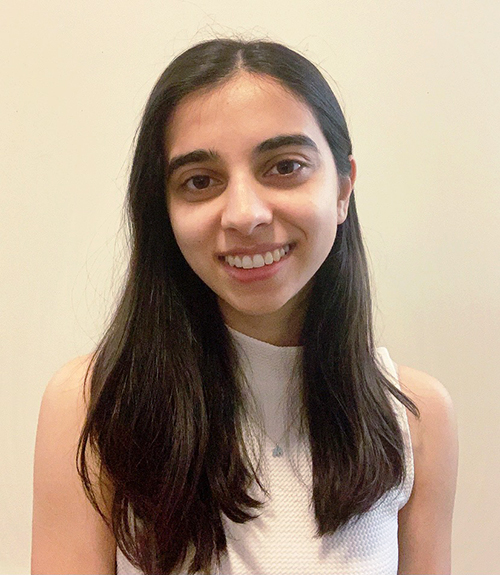 The need to advance health equity and social justice is what drove Blaise O'Malley to study public health. She says the establishment of the JEDI Team was “definitely a step in the right direction” and she was eager to be part of the team at Dartmouth.
The need to advance health equity and social justice is what drove Blaise O'Malley to study public health. She says the establishment of the JEDI Team was “definitely a step in the right direction” and she was eager to be part of the team at Dartmouth.
A highlight of the team’s work for O’Malley is the focus on action beyond just discussion of the issues at hand. She says the team’s strength has been in making use of data they have collected from students and taking actions that are feasible and will result in positive change. The team is always focused on both thinking ahead to what they are going to tackle next and following up on actions they have already taken, she says.
“With my MPH education and my work from the JEDI team, I feel like I can speak about EDI in a much more informed manner,” O’Malley says. It gives me confidence to continue doing this work in a meaningful way.”
POSTED 5/5/2021 AT 09:56 AM IN #news #education
GET IN TOUCH
To arrange a media interview, please contact:
geisel.communications
@dartmouth.edu

